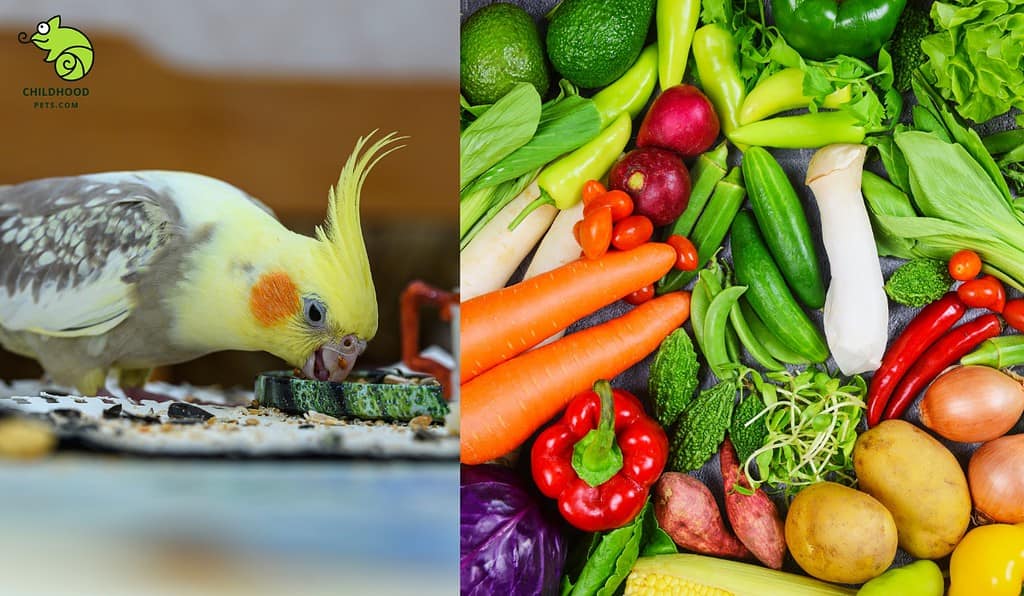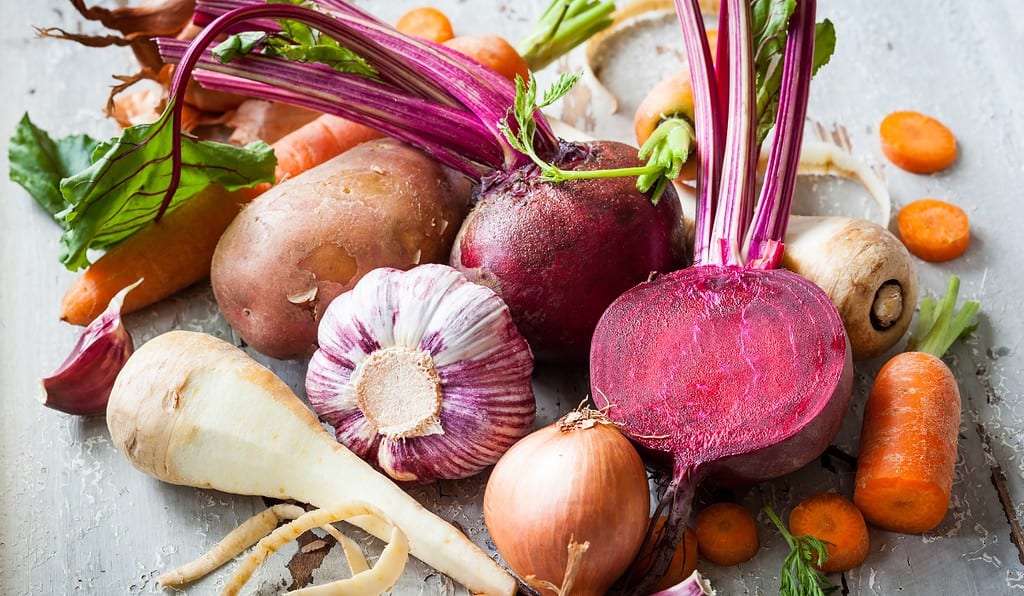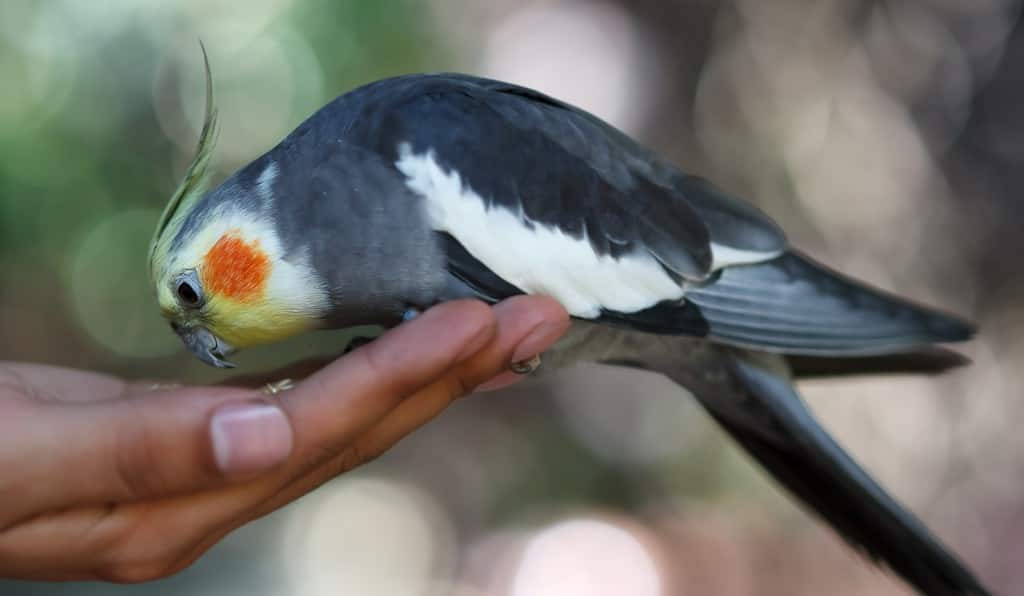
Did you know that a cockatiel’s diet can directly influence its vibrant colors, chirpy melodies, and overall health? Just like us, these feathery companions thrive on a balanced and nutritious diet. And while seeds might be their go-to snack, the world of veggies offers a rainbow of benefits that can keep them chirping happily for years.
As a general rule, cockatiels benefit immensely from a variety of vegetables, including leafy greens like kale and romaine, root vegetables such as carrots, and even some cruciferous veggies. These not only provide essential vitamins and minerals but also add variety to their daily meals.
Curious about which veggies are a hit and which ones might be a miss for your feathered friend? Dive in as we explore the greens and the not-so-greens for cockatiels, all backed by expert advice and research. Let’s embark on this veggie journey together!
🌈 Did You Know? Cockatiels can see a wider spectrum of colors than humans. This means they can appreciate the vibrant hues of fresh vegetables even more!
Understanding Cockatiel Dietary Needs
Cockatiels, with their gentle demeanor and affectionate nature, are a joy to have around. But just like any other pet, they thrive best when their dietary needs are met. Fresh vegetables play a pivotal role in a cockatiel’s diet. They’re packed with essential nutrients that seeds alone can’t provide. While seeds are delicious and often a favorite, they shouldn’t be the only thing on the menu.
🍎 Expert Advice: Seeds are to birds what candy is to kids. Tasty but not always the healthiest choice.
Balancing seeds, pellets, fruits, and vegetables is crucial. Think of it this way: seeds are like the junk food of the bird world. Tasty? Absolutely! Nutritious? Not so much. On the other hand, pellets are a more balanced food source, specifically formulated to meet the unique nutritional needs of birds. And then there are fruits and vegetables, nature’s multivitamins. They offer a range of nutrients that are essential for your cockatiel’s health.
| Food Type | Nutritional Benefits | Examples |
| Seeds | High in fat, limited nutrients | Sunflower, millet |
| Pellets | Balanced nutrition, fortified with essential vitamins and minerals | Cockatiel-specific pellets |
| Fruits | Vitamins, hydration, and natural sugars | Apples, blueberries, papayas |
| Vegetables | Vitamins, minerals, and fiber | Broccoli, kale, carrots |
Remember, while seeds can be a treat, they shouldn’t dominate your cockatiel’s diet. I’ve seen many cockatiels in my practice that are fed primarily seeds, and more often than not, they show signs of malnutrition. It’s like you munching on potato chips all day – not the healthiest choice, right?
So, now that we’ve established the importance of a balanced diet, let’s delve deeper into the world of vegetables. Which ones are safe? Which ones pack the most nutritional punch? And which ones should you approach with caution? Let’s find out!
Safe Vegetables for Cockatiels
Alright, let’s get to the good stuff! Vegetables are a treasure trove of nutrients, and there’s a wide variety to choose from. But, as with everything, it’s essential to know which ones are a hit and which ones might be a miss for our feathered friends.
Leafy Greens
Leafy greens are like the superheroes of the vegetable world. They’re packed with nutrients and are a must-have in your cockatiel’s diet. Here’s a list of some top contenders:
- Romaine and Leaf Lettuce: These are not just fillers; they’re packed with essential nutrients. Remember, the darker the leaves, the more nutrition they contain.
- Bok Choy: A favorite among many cockatiels, and for a good reason. It’s nutritious and adds a crunchy texture that birds love.
- Kale: This superfood is not just for us humans. Kale is a nutrient powerhouse and is especially rich in vitamins.
- Swiss Chard: Another leafy green that’s high in vitamins and minerals. Plus, its vibrant colors can make it more appealing to your bird.
- Mustard Greens: These have a slightly peppery taste and are loaded with vitamins and minerals.
Root Vegetables

Root vegetables are nature’s underground treasures, and they’re packed with essential nutrients that can greatly benefit our feathery companions. Among these, carrots and sweet potatoes stand out as favorites for many cockatiels. Here’s how to best serve them:
- Carrots: These vibrant veggies are a hit among cockatiels. They can be offered both raw and cooked. If you’re serving them raw, ensure they’re washed and finely chopped or grated. When cooked, they become softer and might be more palatable for some birds. Just remember to avoid any seasonings.
- Sweet Potatoes: These are rich in vitamins and are often preferred cooked by cockatiels. Once cooked, they become soft and easy to consume. Again, it’s essential to keep them plain – no added spices or flavors. After cooking, let them cool down to room temperature before serving.
Here’s how to prepare them for your cockatiel:
- Wash Thoroughly: Always ensure that the vegetables are clean and free from any pesticides or chemicals.
- Peel (Optional): While many root vegetables can be fed with their skin on, if you’re unsure about the source, it’s better to peel them.
- Chop or Grate: Depending on your bird’s preference, you can either chop them into small pieces or grate them.
- Cook if Necessary: Some root vegetables, like sweet potatoes, are better when cooked. Boil or steam them without any seasoning.
- Serve Cool: If you’ve cooked the vegetable, ensure it’s cooled down to room temperature before serving.
🥕 Did You Know? Carrots are not only nutritious but also help in naturally cleaning a bird’s beak due to their crunchy texture.
Cruciferous Vegetables
Cruciferous veggies are great, but there are a few things to keep in mind:
- Broccoli: It’s a hit among most cockatiels. You can offer it both raw and cooked. Just ensure there’s no seasoning if you decide to cook it.
- Brussels Sprouts: These mini cabbages are packed with nutrients. However, like broccoli, they contain substances that can interfere with calcium absorption, so moderation is key.
🥦 Tip: While cruciferous veggies are nutritious, it’s essential to balance them with other vegetables to ensure optimal calcium absorption.
Other Vegetables
There’s a wide world of veggies out there, and many of them are perfect for your cockatiel:
| Vegetable | Benefits |
| Beet Greens | High in vitamins and minerals |
| Dried Tomatoes | Packed with antioxidants |
| Corn | Provides essential carbohydrates |
| Spinach | Rich in vitamins, but feed in moderation due to high oxalates |
| Sprouts | A powerhouse of nutrients |
| Pumpkin | High in fiber and essential vitamins |
| Peas | Great source of protein |
| Bell Peppers | Vitamin-rich and adds a crunchy texture |
Remember, while bell peppers are safe, always remove the stems as they can be toxic. And here’s a fun fact: cockatiels can’t taste the heat from hot peppers, so feel free to let them have a nibble!
Vegetables to Approach with Caution
Navigating the world of cockatiel-friendly veggies can sometimes feel like walking a tightrope. While many vegetables are beneficial, some come with a few caveats. Let’s explore:
- Broccoli, Spinach, and Parsley: These greens are nutritious, but they contain substances that can interfere with calcium absorption. So, while they’re not off the menu, it’s best to offer them in moderation. Remember, balance is the key!
- Potatoes: These starchy delights are safe but only when cooked. Raw potatoes can be harmful, so always ensure they’re well-cooked before serving them to your feathered friend.
🚫 Did You Know? Raw potatoes contain solanine, a toxic substance for many animals, including birds.
Unsafe Vegetables and Foods for Cockatiels

Now, this is the section you’ll want to pay close attention to. Some foods, while seemingly harmless to us, can be downright dangerous for cockatiels:
| Unsafe Food | Dangers | Symptoms if Ingested |
| Avocado | Contains persin, which is toxic to birds | Respiratory distress, weakness |
| Garlic | Can cause digestive upset | Lethargy, digestive issues |
| Onions | Can lead to anemia | Weakness, reduced appetite |
| Rhubarb | High in oxalates, harmful to birds | Kidney failure, lethargy |
| Fruit Seeds (e.g., apple seeds) | Contain cyanide | Difficulty breathing, seizures |
It’s essential to be vigilant and ensure that these foods are kept well out of reach. If you ever suspect your cockatiel has ingested something harmful, consult a veterinarian immediately.
Frequently Asked Questions
Can cockatiels eat hot peppers?
Absolutely! Cockatiels lack the receptors to sense the heat, so they can enjoy them without the fiery aftermath.
Is spinach a good choice for cockatiels?
Spinach is nutritious, but it’s best given in moderation due to its potential to interfere with calcium absorption.
Why is avocado a no-go for cockatiels?
Avocado contains persin, a substance that’s toxic to many birds, including cockatiels. It’s best to keep guacamole and other avocado products out of their reach.
🌶️ Fun Fact: Birds, including cockatiels, lack the taste receptors for capsaicin, the compound that makes peppers spicy. So, they can enjoy even the hottest of peppers without feeling the burn!
Final Thoughts
There you have it! A comprehensive guide to feeding your cockatiel the best and most nutritious veggies. Remember, variety is the spice of life, and offering a diverse range of foods will not only keep your bird healthy but also engaged and excited about mealtime. Always do your research and, when in doubt, consult with a vet. Your cockatiel’s health and happiness are worth the extra effort!
